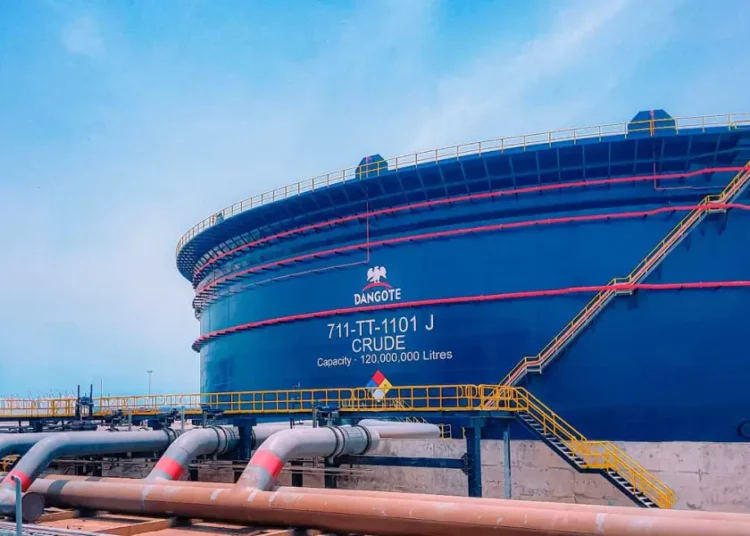The apex northern sociocultural group, the Arewa Consultative Forum (ACF), has strongly condemned what it describes as sustained attempts to undermine the operations of the Dangote Petroleum Refinery and Petrochemicals Company located in Ibeju-Lekki, Lagos.
ACF raised concerns over what it termed “thinly disguised sabotage” targeting Nigeria’s largest indigenous crude oil processing facility.
In a statement issued by its National Publicity Secretary, Prof. T. A. Muhammad-Baba, the ACF expressed worry over a pattern of obstacles confronting the Dangote Refinery from inception to its current operational stage.
According to the Forum, these challenges have included regulatory red tape, supply constraints from the Nigerian National Petroleum Company (NNPC), product pricing issues, and interference from trade unions and marketing associations.
The ACF particularly singled out the roles of the Independent Petroleum Marketers Association of Nigeria (IPMAN), the National Union of Petroleum and Natural Gas Workers (NUPENG), and the Petroleum and Natural Gas Senior Staff Association of Nigeria (PENGASSAN), accusing them of engaging in disruptive actions, including picketing and threats, that have further destabilised the refinery’s operations.
Despite the wave of opposition, the Forum noted that Alhaji Aliko Dangote, the owner of the refinery, had remained resolute and commended his perseverance in the face of “coordinated resistance” from entrenched interests, whom the ACF described as a cabal determined to maintain control over Nigeria’s petroleum value chain.
“It is becoming increasingly clear that there are subterranean forces determined to see this indigenous world-class industrial facility fail,” the statement said. “This reflects the same patterns that have ensured the failure of Nigeria’s four publicly owned refineries.”
Regarding labour union agitation, the ACF acknowledged workers’ constitutional right to unionise but took exception to what it described as PENGASSAN’s “coercive” push to force refinery staff into union membership. The Forum insisted that union membership is a personal choice, not an imposition.
Backing the Dangote Group’s resort to legal action to safeguard its operations, the ACF faulted PENGASSAN for allegedly flouting a subsisting court order restraining it from disrupting the refinery’s activities. It described the union’s defiance as a direct affront to Nigeria’s judicial system and a dangerous precedent in its industrial relations landscape.
The group also threw its weight behind recent comments by Senator Adams Oshiomhole and Senator Mohammed Ali Ndume, who advised that the refinery should be given time to stabilise before any form of labour unionism is introduced. “You cannot unionise a workplace still in its operational infancy,” the ACF argued.
In a broader national context, the ACF warned that the continued harassment of the Dangote Refinery could send negative signals to both domestic and international investors. It called for the refinery to be designated as a strategic national asset worthy of protection under Nigeria’s national security framework.
To this end, the Forum urged the Federal Government to commence the process of compiling a National Register of Strategic Assets, comprising both public and private sector investments. According to the ACF, this would shield such facilities from actions and actors detrimental to the country’s economic security.
Furthermore, the ACF called for establishing a judicial commission of inquiry to investigate repeated strike actions targeting key national and private sector institutions. It said this would help uncover those behind what it sees as an organised campaign to derail Nigeria’s industrial progress.
The Forum, therefore, urged labour unions to avoid actions that could sabotage indigenous investment efforts. “Labour must be vigilant and discerning. The real enemy may not be within our shores, but external interests working in collaboration with local actors to keep Nigeria dependent and underdeveloped,” the statement concluded.





